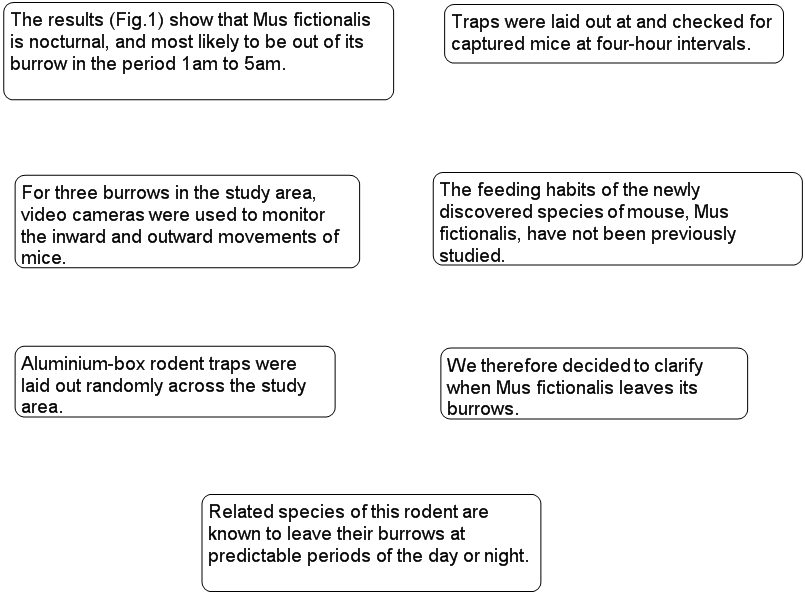The Science Of Scientific Writing Set B Paragraphs: Intro to Readers' Expectations The Landmark What makes a landmark? Exercise 1 Quiz Landmark should appear early Exercise 2 A kick in the tail A plan for writing landmark-final paras Exercise 3 Exercise 4 Exercise 5 Exercise 6 Final Page.
OVERVIEW: The way to well-written science
PART I: Paragraphs and Sentences
SET A: Paragraphs: The Maps Behind Them
SET B: Paragraphs: Using Maps to Meet Readers' Expectations
SET C: Paragraph Coherence and Cohesion
SET D: Sentences
SET E: Scientific Sections (including Methods)
SET F: Scientific Sections: The Discussion
SET G : Scientific Sections: The Introduction
SET H : The Paper as a Whole
Exercise 5
 The procedure for Exercise 5 is the same as for Exercise 3. You will "construct" a landmark-final map, then a paragraph, from a set of supplied sentences.
The procedure for Exercise 5 is the same as for Exercise 3. You will "construct" a landmark-final map, then a paragraph, from a set of supplied sentences.
First you must decide which sentence/s, if any, represent:
- A pointer sentence
- A paragraph-concluding landmark sentence
- Introductory sentence/s (i.e. non-core sentences that precede the pointer sentence)
Then arrange those sentences in a landmark-final map as per the previously suggested format (see here).
1. Drag the image of the seven sentences below onto the Rationale Workspace, and then rearrange the individual sentences as per the above instructions. For the dragging to work, you must be viewing this page using Rationale's inline browser.
2. Then use the map as the basis for a landmark-final paragraph. After you have copied the sentences from the map boxes, make sure to edit the text so that it reads smoothly.
No Model Answer is supplied. Feedback will be provided by your instructor (if available).
......
